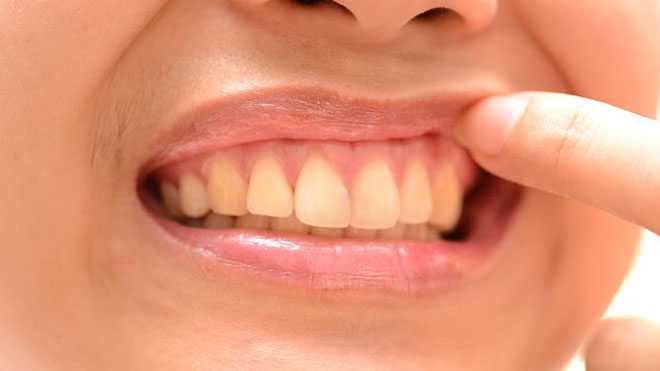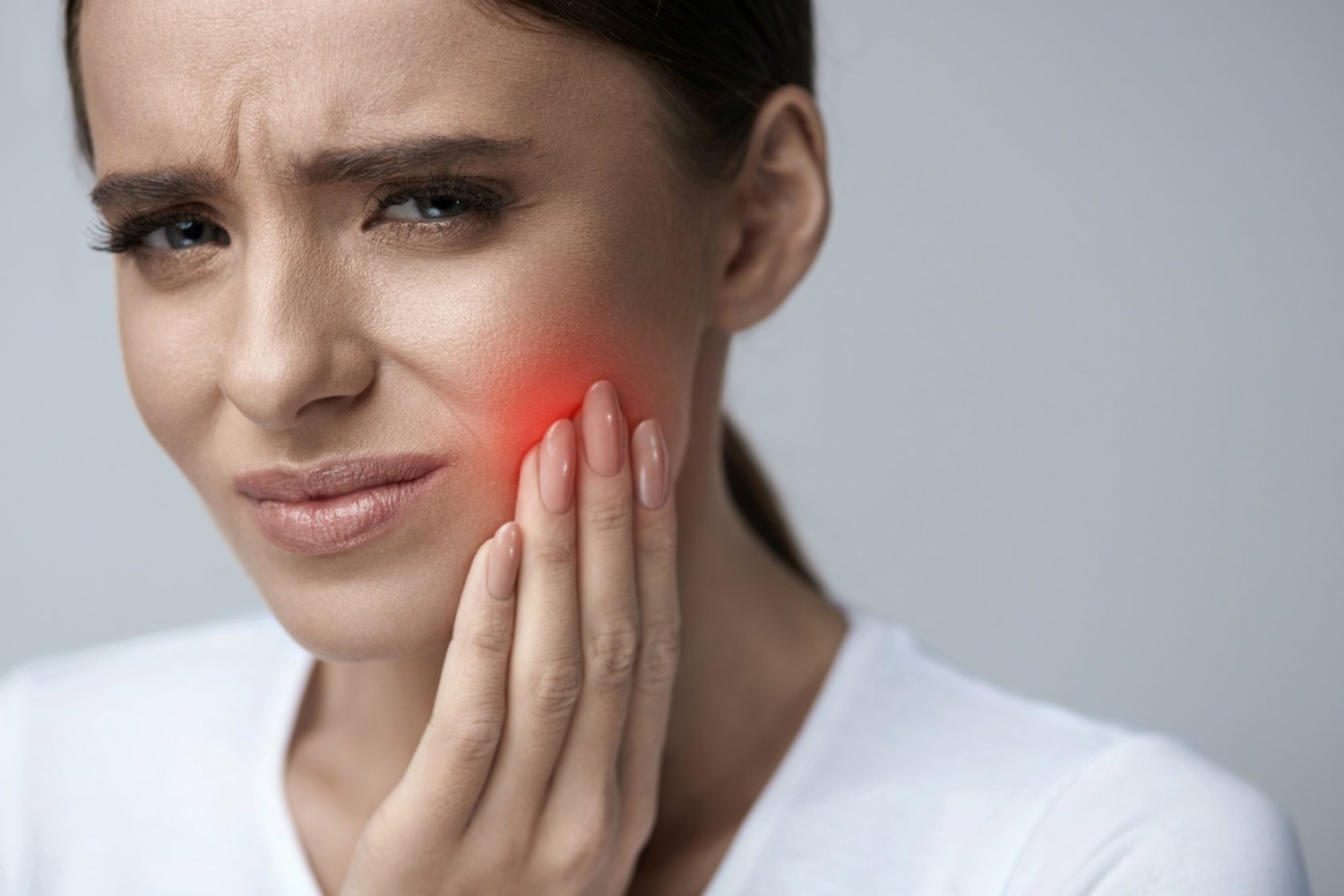Someone who grinds his teeth in his sleep, causes a lot of inconvenience to himself and others. But it is not terrible if it happens occasionally. If the attacks of teeth grinding begin to repeat more and more often, causing damage to health, then this situation requires immediate medical intervention. Why children and adults grind their teeth and how to get rid of this unpleasant phenomenon, we will tell you in our article.
What is bruxism
Bruxism (this is the medical term for teeth grinding) is a dental disorder, the main signs of which are periodic uncontrollable spasms of the masticatory muscles, accompanied by clenching of the jaw and teeth grinding. Sometimes a person learns about the presence of this disease only at an appointment with a dentist. The diagnosis is confirmed after a polysomnographic study, which shows the exact number of involuntary contractions of the masticatory muscles during sleep.
Symptoms of the disease
If you are interested in the answer to the question “Do you grind your teeth at night?”, ask the people living with you about it – they know it for sure. But if there is no one to ask, you can determine for yourself after waking up whether you grind your teeth by the following symptoms:
- pain in the masseter muscles
- temporomandibular joint pain
- morning headache
- pain and ringing in the ears
- sinus pain
- back pain, shoulder pain, neck pain
- dizziness and tingling in the head
- breakdown of tooth enamel, chipped, cracked, fractured crowns, loose teeth
- daytime sleepiness
All of the above symptoms are not a hundred percent guaranteed to indicate the presence of this disease, but their appearance should be alarming.

The most common causes of bruxism
Why do people grind their teeth? Here are some of the main causes of bruxism.
- Harmful habit.
Bruxism is sometimes a bad habit, such as when a person has a spontaneous desire to chew on something (nails, lips, pencil and pen tips, other objects). - Psychological problems.
Most researchers believe that in 70% of cases the causes of bruxism are stress, nervous stress, emotional overstrain, which entails anxiety, agitated state and, as a consequence, uncontrollable contractions of the muscles of the jaw, especially at night. - Dental problems.
A person can grind his teeth due to the presence of dentoalveolar anomalies: lack of teeth or, on the contrary, their overcompleteness, improper bite, poorly matched braces, poor-quality therapeutic treatment or prosthetics. - Diseases of the ear, throat and nose.
Adenoids, maxillary sinusitis, rhinitis, deviated nasal septum, difficult nasal breathing, can also cause bruxism attacks in adults and children. - A complication of Parkinson’s and Huntington’s diseases is teeth grinding in sleep.
Additional factors of teeth grinding attacks at night or during the day can be craniocerebral trauma.
It is a scientifically proven fact that such a disease as bruxism can be inherited.
Complications of bruxism
Unpleasant health consequences of bruxism are quite a lot, here are just a few of them:
- High tooth erosion, sensitivity of enamel
- Loosening of teeth
- Bite deformation
- Premature destruction of dentures and crowns
- Muscle pain
- Chewing pain
- Interrupted sleep
- Fatigue

Forms of bruxism
There is a daytime and a nighttime form of the disease. The causes and symptoms of night and day bruxism are the same, but during the day the patient can control the attacks of the disease, but in sleep – not, because of which involuntarily grinds teeth throughout sleep.
- Daytime form.
The daytime form of bruxism is not as common as the nocturnal form. The main reason for its occurrence is emotional overstrain, stress. To avoid teeth grinding in the daytime, a person only needs to control the position of the jaw, do not allow its clenching, to be able to relax it, thereby reducing the force of friction of the teeth against each other. Attending various psychological courses will help the patient to relieve nervous tension, learn how to effectively manage their emotions. - Nocturnal form.
Grinding teeth at night is the most common and dangerous form of bruxism. The patient is unable to control the attack, which means that the consequences of the disease can be very serious. The tapping or grinding of teeth in sleep can last from 10 seconds to 1 minute and can be repeated many times throughout sleep. Bruxism attacks affect the quality of sleep, accompanied by increased heart rate and breathing, increased blood pressure, so in the morning the patient feels tired.
Bruxism in children
“Why does the child grind his teeth at night?” – such a question is asked by many parents. And this is not surprising, because bruxism is found in every second child. The reason for this in most cases is an unstrengthened child’s psyche, which is not yet able to withstand various emotional stresses. To solve the problem with teeth grinding in a child will help to improve the psychological climate in the family and children’s team, as well as timely treatment by a neurologist.
Teething and change of teeth can also cause unpleasant grinding of teeth in a child’s sleep. If you do not contact a pediatric dentist in time, it can lead to damage to the temporomandibular joint, the development of malocclusion, premature tooth loss, inflammation of the gums.
As a rule, bruxism attacks in children disappear with age, but parents should definitely contact specialists if:
- the child is more than 7 years old
- the child grinds teeth frequently and for a long time
- signs of tooth decay and gum inflammation are visible
Many adults believe that if a child grinds his teeth in his sleep, it means that he has worms, pinworms or other parasites in his intestines. Parasites can provoke grinding in about 30% of children, while the other 70 do not cause such symptoms. Therefore, you should still see a pediatrician to rule out this problem.

Bruxism in adults
The number of adults suffering from bruxism is about 10-15% of the total number of patients. Do not hope that teeth grinding in an adult will go away on its own. In the chronic course of the disease, the patient’s teeth are gradually completely destroyed, crowns and dentures are erased under the root, and excessive tension in the temporomandibular joint eventually leads to a serious disease – arthritis. The quality of life is also reduced: a person who is constantly under stress cannot relax, rest, sleep, which provokes a feeling of psychological discomfort, and later – depression.
Bruxism is much more common among people in certain professions that require high concentration of attention, impeccable accuracy and precision in work (for example, executives, jewelers, surgeons, watchmakers, architects).
If you know that you have recurrent bruxism, try to minimize the dangerous effects of the disease:
- minimize stressors
- learn to relax
- do quiet activities in the evening
- avoid eating before bedtime
- introduce solid fruits and vegetables (carrots, apples, cabbage) into your diet.
- take warm baths
However, these bruxism remedies can only be used in conjunction with medical treatment, which will be discussed next.
Medical treatment for bruxism
Treatment of teeth grinding is based on eliminating the causes of the attacks. The main goal of therapy is to relieve spasm in the masticatory muscles. If in children teeth grinding with age can pass independently, bruxism in adults requires complex treatment with the use of medications, psychological and dental techniques.
The psychological aspect is aimed at eliminating the causes caused by stress. If a person can not cope with psychoemotional stresses on his own, he needs to seek help from a psychologist. Special relaxation techniques will help to relieve fatigue, learn to relax and prevent stress. To get rid of nervous overstrain and improve performance well help regular physical therapy and optimal physical activity.
Drug therapy is prescribed exclusively by a neurologist and includes the use of sedatives and sleeping pills, vitamin and mineral complexes, Botox injections and so on. Massage, manual therapy, physiotherapy, warm compresses – all these methods of bruxism treatment are prescribed by a doctor in the presence of certain medical indications.
Dental treatment of bruxism in most cases is carried out in conjunction with a therapist, orthodontist and orthopedist. One of the most effective methods of getting rid of teeth grinding in sleep is the use of special protective mouth guards, which are made individually according to impressions. Soft mouthguards are fixed between the teeth, protect them from trauma and abrasion, and reduce tension in the jaw. Recovery of muscle activity after the use of a night mouth guard comes literally from the first days of use. The quality of sleep improves noticeably, you wake up without pain in the chewing muscles and noticeably rested.
If the cause of nighttime teeth grinding is an incorrect bite, an orthodontist will choose the right treatment option for you. Prosthodontics can help correct dental defects.
Whatever the cause of this condition, make an appointment with a specialist to ensure that your teeth are protected from wear and tear and that you and your loved ones can sleep comfortably and peacefully.




